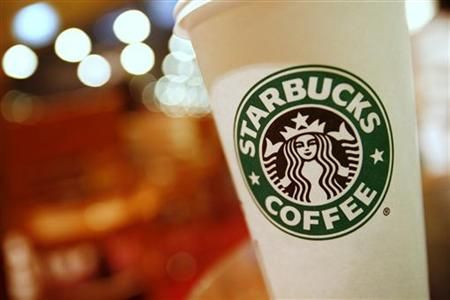Starbucks Corporation Seeking A Scandinavian Foothold With New Deal

Starbucks Corporation (NASDAQ:SBUX) is charging ahead in its European expansion efforts despite the ongoing sovereign debt crisis and the high cost of entry into the market. The strategy is part of the company’s efforts to boost its global footprint in Asia, Europe and the Middle East.
Seattle-based Starbucks announced a deal Thursday to expand stores in Norway, Sweden and Finland in partnership with Umoe Restaurant Group AS.
The company already has a small footprint at airports and rail stations, but under the new deal the cafes with their green-and-white Siren logo so ubiquitous in the United States will appear on main streets in Norway and Sweden beginning next year.
“There is an increasing demand for premium coffee throughout this region,” said Umoe CEO Karen Kvalevåg in a Starbucks statement.
The coffee chain is considerably saturated in the U.S. market with nearly 11,000 stores, either directly operated or licensed. The company said it had 17,009 stores worldwide as of January. Under the leadership of Michelle Gass, the 44-year-old head of the company’s EMEA (Europe, Middle East and Asia) segment, Starbucks is seeking to find a secure imprint in the European market and elsewhere. It has been slow going.
Glass, a 16-year company veteran, has been involved off and on with the company’s global strategy since 2008, according to a Bloomberg profile.
Between 2008 and 2001, the chain closed about 600 stores in the United States due to the economic downturn, according to Switzerland-based Global Franchise Architects. During the same period, the company opened at least 338 stores worldwide. Last year the expansion accelerated; it opened nearly 500 stores, many of them in China, according to the Wall Street Journal.
Stores in Europe, Africa and the Middle East currently represent about 8.5 percent of the company’s total revenue.
But it has been tough going in Europe, considering the higher cost of salaries and real estate, not to mention Europeans’ general aversion to grabbing a paper cup of coffee on the go. Eight years after entering the French market in 2004, the company has not profited from the 63 stores it has there, according to the New York Times. In Italy, where coffee seems second only to Catholicism in its wide appeal, the company has yet to open one store.
The UK, on the other hand, is home to about half of all European Starbucks outlets, with about 750 stores and another 300 in the works, the company said in February. Northern Europe leads the region in coffee consumption and has not borne the brunt of the euro zone crisis compared to southern Europe, and so Nordic expansion seems like the most logical step.
© Copyright IBTimes 2024. All rights reserved.





















